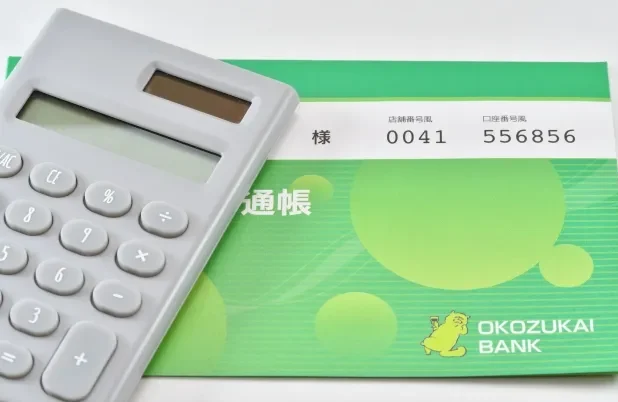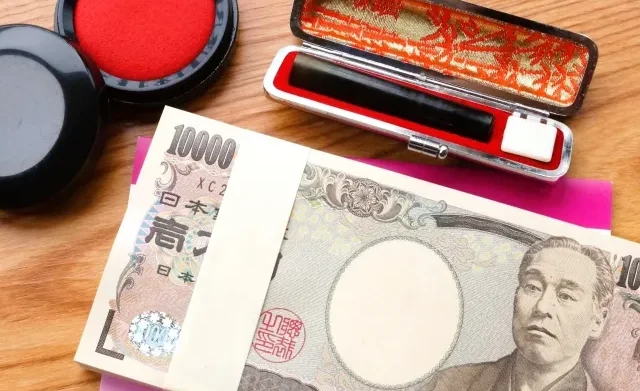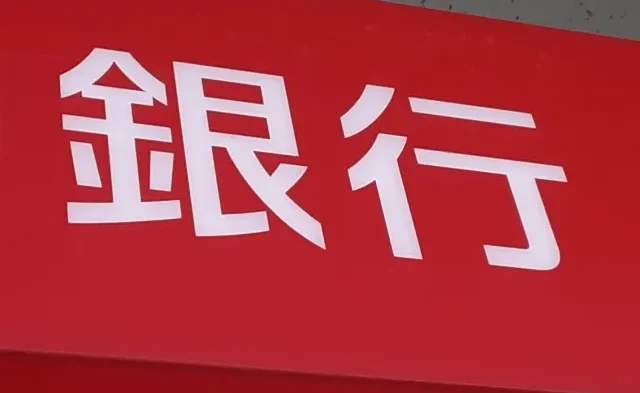How to open a bank account in Japan? What you need and popular banks

Many foreigners who have moved to Japan may be at a loss as to how to open a Japanese bank account.
Therefore, in this article, we will explain in detail what is required to open a bank account in Japan, the procedure flow, and recommended banks. Please understand the documents and precautions required to open an account, and proceed smoothly with the procedures.
We also recommend the following banks for everyday use, comparing major banks, English-speaking banks, and online banks.
Furthermore, in the latter half of the article, we also cover Japanese expressions that are useful to know when opening an account. Since many of the phrases are unique to financial institutions, it is a good idea to check them beforehand.
▼Goandup Picks Click here for recommended articles!
- Required before studying abroad! Goandup Nihongo+, an online Japanese language learning service
- This page introduces services for foreigners who wish to study in Japan or improve their Japanese language skills to learn Japanese online.
- Goandup Salon" community for foreigners living in Japan
- We introduce an online community where foreigners living in Japan can exchange information and interact with each other to support their life in Japan.
- Goandup Study" supports foreigners who want to study in Japan.
- This section introduces study abroad support services that provide comprehensive support to foreigners who wish to study in Japan, from preparation for study abroad to living in Japan.
- Where can I buy a prepaid SIM in Japan? Recommended SIM cards for foreigners are also introduced.
- How to purchase a prepaid SIM and suitable SIM cards for foreigners.
- The Complete Guide to Pocket Wi-Fi in Japan for Foreigners!
- We introduce how to select and recommend pocket Wi-Fi products that can be used conveniently in Japan.
- The Complete Guide to Finding a Job in Japan! Finding a job, changing jobs, and part-time work for foreigners
- This site provides foreigners who want to work in Japan with comprehensive information on how to find a job, recommended job sites, and other information necessary to find a job.
What is required to open a Japanese bank account?

This section provides information on the documents and information required to open a bank account in Japan.
- Personal seal (or signature, depending on the bank)
- Identification documents (residence card, driver's license, etc.)
- Documents proving that the period of stay is 90 days or more (residence card, copy of resident card, etc.) *For foreigners
- Initial deposit amount (varies by financial institution, generally around 1,000 yen)
First, a personal seal is essential. Some banks may allow you to open an account with a signature instead of a seal. Next, identification documents such as a residence card or driver's license are required. Note that a passport alone is often insufficient.
In addition, although there is no fee for opening an account itself, some financial institutions may require an initial deposit when opening an account. The amount of the initial deposit varies from bank to bank, but it is generally around 1,000 yen.
When opening a bank account in Japan, foreign nationals may be required to present documents proving that they have been in Japan for 90 days or more (residence card, copy of resident card, etc.) in addition to the above required documents. For detailed conditions and required documents for opening a bank account for a foreigner, please refer to the "Explanation of conditions, required documents, and recommended banks for foreigners to open a bank account.Please refer to the "See
Once you have all the necessary documents, visit the nearest branch of the bank where you wish to open an account. Weekday mornings are recommended as they are relatively free. At the counter of the branch, tell them you wish to open an account and fill out the necessary information. Some banks allow you to choose between Japanese and English as your preferred language. We will introduce banks that offer English-language services in more detail later.
Procedures for opening a bank account

Next, we will explain the specific procedures for opening a bank account.
- Branch Office Visit
- Go to the nearest branch of the bank where you wish to open an account
- Tell the receptionist that you want to open an account and receive an application form.
- Fill out the application form
- Fill out the application form
- Submit identification documents and a seal (or signature)
- Verification of documents
- A bank representative verifies the completed form and submitted documents.
- Completion of account opening
- If there are no problems, the account is opened on the spot.
- Cash cards are mailed at a later date (1-2 weeks) or received on the spot
- Internet Banking Application
- Internet banking application available on the spot.
First, go to the nearest branch of the bank where you wish to open an account. Tell the receptionist that you wish to open an account and receive an application form. Fill out the application form, and submit your personal identification documents and seal (or signature).
A bank representative will check to make sure that the information is complete and that there are no problems with the submitted documents. If there are no problems, the account opening is completed on the spot. In most cases, cash cards are mailed at a later date, but some banks accept them on the spot. Keep in mind that it will take one to two weeks if mailed at a later date.
You can also apply for Internet banking on the spot. With Internet banking, you can make transfers, check your balance, and perform other transactions without having to go to an ATM. Because of its convenience, we recommend that you apply for it.
If you already have an account, many banks allow you to apply for Internet banking online without visiting a branch. You do not need to apply when you open your account; you can do so later.
Furthermore, an increasing number of banks are now offering account opening services that can be completed via apps or online. No need to visit a branch, simply fill in the required information from your smartphone or computer, take a picture or upload your identification documents, and your account is open.
If you prefer to have your service in English, choose a branch with English-speaking staff for peace of mind.
Bank Hours

Japanese banks are generally open from 9:00 a.m. to 3:00 p.m. on weekdays (Monday through Friday). They are closed on Saturdays, Sundays, and national holidays. However, hours of operation may differ from branch to branch, so it is recommended to check in advance.
Some branches in urban areas are open until 5 p.m. on weekdays. ATMs also have longer hours than stores and are often available from 8:00 a.m. to 9:00 p.m. on weekdays and from 9:00 a.m. to 7:00 p.m. on weekends and holidays.
For net banking, transactions can be made 24 hours a day, 365 days a year over the Internet.
When opening an account, we recommend that you complete the procedure in the morning on a weekday. Afternoon is often crowded and the procedure may take longer.
Popular banks for everyday use

Among the many banks in Japan, we recommend the following popular banks for everyday use. We will divide them into three categories: major banks, English-speaking banks recommended for foreigners, and Internet banks.
(1) Major banks
Japan's major banks are characterized by their large number of branches and high convenience; ATMs are located throughout the country, making it easy to withdraw money wherever you are. The following are major banks recommended for everyday use.
- Mitsubishi UFJ Bank: The largest bank in Japan, with a wide nationwide network of branches. It offers a service called "Inkan-less account," which means that you do not need your personal seal when you open an account.
- Sumitomo Mitsui Banking Corporation: This megabank has many branches and ATMs throughout Japan. It offers a full range of services for foreigners, and multi-lingual account opening is available.
- Mizuho Bank: A major bank with many branches, mainly in Tokyo. An Internet banking service called Mizuho Direct is convenient.
- Japan Post Bank: As a member of the Japan Post Group and affiliated with post offices, Yucho Bank has a large number of ATMs. Another advantage is the low fees charged when using ATMs of other banks.
Large banks are reliable and secure. In addition, the same services are available anywhere in Japan. However, the disadvantage is that fees are high.
(2) Banks recommended for foreigners (English-speaking banks)
For foreigners who are not comfortable with Japanese, we recommend banks that offer English-language services. Below are banks that offer a full range of services in English.
- Shinsei Bank: The website and application are available in English, and account opening can be completed online.
- SBI Sumishin Net Bank: This is a specialized Internet bank, but offers a full range of services for foreigners. Accounts can be opened in English, and the website and applications are also available in English.
English-speaking banks are recommended for those who are not comfortable with Japanese, as they have fewer hurdles in terms of language. However, please note that the number of branches is smaller than those of major banks.
(3) Net Bank
Internet banks, which conduct transactions over the Internet without a storefront, are attractive because of their low fees. The following are recommended online banks for everyday use.
- Rakuten Bank: A pioneer in Internet-specialized banking, Rakuten Bank is conveniently linked to Rakuten Group services. ATM fees are waived for Rakuten Card users.
- PayPay Bank: fully online account management, low transfer fees, linked to the PayPay app for easy money transfers and payments.
- GMO Aozora Net Bank: Smartphone application for convenient transactions; website available in English, Chinese, Vietnamese, Burmese (after Myanmar), and Indonesian, in addition to Japanese.
The biggest advantage of online banking is that you can make transactions whenever you want, 24 hours a day, 365 days a year. They also have lower fees than major banks, making them a good choice for those who want to keep costs down.
If you are unsure about choosing a bank for your everyday use, we recommend that you compare the advantages and disadvantages of major banks, English-speaking banks, and online banks, and choose the bank that best suits your lifestyle.
5 useful Japanese words to know when opening an account

Here are five Japanese words that are useful to know when opening or using a bank account. Many of the words are unique to financial institutions, so it is helpful to understand them beforehand.
(1) Withdrawals
Withdrawal" means to withdraw money from your bank account; it appears on the ATM screen and in your passbook as "Withdrawal.
(2) Deposits
Deposit" means depositing money into a bank account. This is also the term that appears on the ATM screen and in your passbook.
(3) Transfer and remittance
Both "transfer" and "remittance" refer to the transfer of money from one's own account to another's account.
Transfers" are used primarily to transfer money between domestic accounts and can be made over the counter, at ATMs, or through Internet banking. Fees are often charged.
Remittance" is used to transfer money, both domestically and internationally, and has a broader meaning than "transfer. It also includes non-bank methods (Paypal, e-money, etc.).
When a foreigner conducts a bank transaction in Japan, the term "transfer" is mainly used. When transferring money to an overseas account, international remittance procedures must be followed, and fees and exchange rates must be confirmed.
The specific method of sending or transferring money from a Japanese bank ATM or convenience store ATM to another bank is explained in detail in the following article.
▶︎ How to remit or transfer money from a Japanese bank ATM or convenience store ATM to another bank
(4) Account name
The "account name" is the name of the owner of the bank account. It must be registered accurately based on your identification documents when you open an account.
(5) Passbook entry
Passbook Entry" means the printing of a transaction history in a passbook. This term is used to update your passbook at the bank counter or ATM. Although more and more accounts do not issue passbooks these days, if you have a passbook, it is recommended that you fill it out regularly.
Opening an account can be a nerve-wracking experience, but remembering these words will help the process go smoothly.
Serious employment support to help you realize your dream of working in Japan!

Do you want to work in Japan?
Let us "Goandup" make that dream a reality!
【 Program Features 】
✅ JLPT N3 level Japanese language acquisition
✅ Thorough preparation for the specific skills test
✅ Full support for job hunting in Japan
Business-focused one-on-one lessons will help you find a job in Japan in the shortest possible time.
【 Program Menu 】
- Individual Japanese language lessons
- Intensive curriculum to obtain N3, especially specialized lessons for business Japanese that can be used at work.
- Intensive curriculum to obtain N3, especially specialized lessons for business Japanese that can be used at work.
- Preparation for the Specific Skills Test
- Customized materials for specific skill tests will be used to focus on frequently asked questions and learning to pass the test.
- Customized materials for specific skill tests will be used to focus on frequently asked questions and learning to pass the test.
- Resume and CV support
- To create resumes and CVs tailored to Japanese corporate culture, and to brush up on self-promotion and motivation for application.
- To create resumes and CVs tailored to Japanese corporate culture, and to brush up on self-promotion and motivation for application.
- Interview Preparation
- Guidance on areas for improvement through mock interviews and feedback based on corporate interview scenarios. Learn interview etiquette and behavior unique to Japan.
- Guidance on areas for improvement through mock interviews and feedback based on corporate interview scenarios. Learn interview etiquette and behavior unique to Japan.
- career consulting
- Provide introductions to companies that match the participant's career goals, select companies to apply to, and provide advice on the level of knowledge required by the companies to which the participant is applying.
- Provide introductions to companies that match the participant's career goals, select companies to apply to, and provide advice on the level of knowledge required by the companies to which the participant is applying.
- Chat Support
- In addition to one-on-one individual lessons, we also accept casual questions via DM (visa application, living support, assistance in finding a room, etc.).
If you are serious about your career in Japan, join us now!
▶︎ for more informationclick here.
We will do our best to support your success in Japan!
summary
In this issue, we have explained in detail how to open a bank account in Japan and what is required. When opening a bank account, it is important for foreign residents to prepare necessary documents such as a residence card and personal seal in advance. In addition, choosing a bank that offers English-language services will eliminate any concerns about language barriers.
It is recommended that you choose a bank for your everyday use that meets your needs in terms of low fees, convenience of ATMs, and number of branches. Major banks, English-speaking banks, and online banks all have their advantages and disadvantages, so compare them carefully before making a decision.
Once you have opened a bank account, the next step is to consider getting a debit or credit card. Please check the following article for more information on debit and credit cards recommended for foreigners.
- Five debit cards for foreigners! Advantages and cautions are also explained.
- How to make it easier for foreigners to get credit cards in Japan
- Is it difficult for foreigners to get a credit card? What you need and tips for screening.
A bank account in Japan is an indispensable part of daily life. Many people may feel uneasy about the procedures, but if you prepare the necessary documents, you can open a bank account more smoothly than you may think. Please refer to this article to find a bank account that suits you.
Your support will help us!
Thank you for visiting Goandup Picks. Our mission is to provide you with more useful information to show the world what Japan has to offer.
Your support will help us to further enhance our activities, so please support us!






